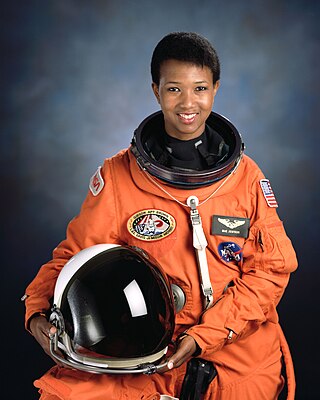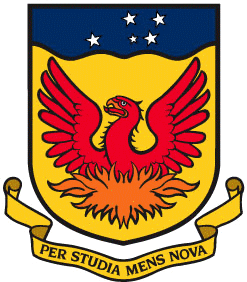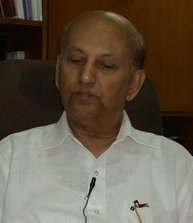Related Research Articles

The European Space Agency (ESA) is a 22-member intergovernmental body devoted to space exploration. With its headquarters in Paris and a staff of around 2,200 people globally as of 2018, ESA was founded in 1975. By 2023, it will have an annual budget of about €7.08 billion.

Purdue University is a public land-grant research university in West Lafayette, Indiana, and the flagship campus of the Purdue University system. The university was founded in 1869 after Lafayette businessman John Purdue donated land and money to establish a college of science, technology, and agriculture in his name. The first classes were held on September 16, 1874, with six instructors and 39 students. It has been ranked as among the best public universities in the United States by major institutional rankings.

The United Nations Environment Programme (UNEP) is responsible for coordinating responses to environmental issues within the United Nations system. It was established by Maurice Strong, its first director, after the United Nations Conference on the Human Environment in Stockholm in June 1972. Its mandate is to provide leadership, deliver science and develop solutions on a wide range of issues, including climate change, the management of marine and terrestrial ecosystems, and green economic development. The organization also develops international environmental agreements; publishes and promotes environmental science and helps national governments achieve environmental targets.

Macalester College is a private liberal arts college in Saint Paul, Minnesota. Founded in 1874, Macalester is exclusively an undergraduate four-year institution with an enrollment of 2,174 students in the fall of 2018. The college has Scottish roots and emphasizes internationalism and multiculturalism.

Mae Carol Jemison is an American engineer, physician, and former NASA astronaut. She became the first African-American woman to travel into space when she served as a mission specialist aboard the Space Shuttle Endeavour in 1992. Jemison joined NASA's astronaut corps in 1987 and was selected to serve for the STS-47 mission, during which the Endeavour orbited the Earth for nearly eight days on September 12–20, 1992.

Robert Brent "Bob" Thirsk, is a Canadian retired engineer and physician, and a former Canadian Space Agency astronaut. He holds the Canadian record for the most time spent in space. He became an officer of the Order of Canada (OC) in 2013 and was named to the Order of British Columbia (OBC) in 2012.

The Teacher in Space Project (TISP) was a NASA program announced by Ronald Reagan in 1984 designed to inspire students, honor teachers, and spur interest in mathematics, science, and space exploration. The project would carry teachers into space as Payload Specialists, who would return to their classrooms to share the experience with their students.

The University of Southern Queensland is a medium-sized, regional university based in Toowoomba, Queensland, Australia, with three university campuses at Toowoomba, Springfield and Ipswich. It offers courses in law, health, engineering, surveying and built environment, the sciences, business, education, and the arts. The institution was established in 1969 as the Darling Downs campus of the Queensland Institute of Technology. In 1970, the institution had provided studying programs for rural Queensland and international communities. In 1971, it became the Darling Downs Institute of Advanced Education, then the University College of Southern Queensland in 1990 and finally the University of Southern Queensland in 1992. It operates three research institutes and seven research centres which focus on a wide range of business, agricultural, scientific, environmental, and technological issues.

The University of Houston–Clear Lake (UHCL) is a public university in Pasadena and Houston, Texas, with branch campuses in Pearland and Texas Medical Center. It is part of the University of Houston System. Founded in 1971, UHCL had an enrollment of more than 9,000 students for fall 2019.

Udupi Ramachandra Rao was an Indian space scientist and former chairman of the Indian Space Research Organisation. He was also the Chairman of the Governing Council of the Physical Research Laboratory at Ahmedabad and Nehru Planetarium at Bengaluru and chancellor of the Indian Institute for Space Science and Technology (IIST) at Thiruvananthapuram. He is known as "The Satellite Man of India". He pioneered India's first satellite launch Aryabhata in 1975.

Environmental education (EE) refers to organized efforts to teach how natural environments function, and particularly, how human beings can manage behavior and ecosystems to live sustainably. It is a multi-disciplinary field integrating disciplines such as biology, chemistry, physics, ecology, earth science, atmospheric science, mathematics, and geography.

The Space & Upper Atmosphere Research Commission, commonly referred to as SUPARCO, is the independent agency of the Government of Pakistan responsible for the national civilian space program.

The National Aeronautics and Space Administration is an independent agency of the U.S. federal government responsible for the civil space program, aeronautics research, and space research. Established in 1958, NASA succeeded the National Advisory Committee for Aeronautics (NACA) to give the U.S. space development effort a distinctly civilian orientation, emphasizing peaceful applications in space science. NASA has since led most American space exploration, including Project Mercury, Project Gemini, the 1968–1972 Apollo Moon landing missions, the Skylab space station, and the Space Shuttle. NASA currently supports the International Space Station and oversees the development of the Orion spacecraft and the Space Launch System for the crewed lunar Artemis program, the Commercial Crew spacecraft, and the planned Lunar Gateway space station.

Kevin Hand is an astrobiologist and planetary scientist at JPL. He is also the founder of Cosmos Education and was its president until 2007. He was working at NASA Ames when he was inspired to form Cosmos Education in 1999 after getting a grant from the Earth and Space Foundation to tour African schools to talk about how education relates to space research.
North American collegiate sustainability programs are institutions of higher education in the United States, Mexico, and Canada that have majors and/or minors dedicated to the subject of sustainability. Sustainability as a major and minor is spreading to more and more colleges as the need for humanity to adopt a more sustainable lifestyle becomes increasingly apparent with the onset of global warming. The majors and minors listed here cover a wide array of sustainability aspects from business to construction to agriculture to simply the study of sustainability itself.

The Algerian Space Agency, was established on January 16, 2002 in Bouzareah, Algiers. The agency is in charge of the Algerian space program, and has flown five different satellites.

The Mohammed bin Rashid Space Centre is a Dubai government organisation working on the UAE space programme, which includes various space satellite projects, the Emirates Mars Mission, the Emirates Lunar Mission, and the UAE astronaut programme. The centre actively works to promote space science and research in the region. The centre encompasses the Emirates Institution for Advanced Science and Technology (EIAST).

Since its establishment in 1958, NASA has conducted research on a range of topics. Because of its unique structure, work happens at various field centers and different research areas are concentrated in those centers. Depending on the technology, hardware and expertise needed, research may be conducted across a range of centers.

Daniella Tilbury is a Gibraltarian academic, educator and sustainable development leader who was the first woman in her country to hold the title of university professor. The inaugural Vice-Chancellor and CEO of the University of Gibraltar, Tilbury, who has long been involved in sustainability issues became the first Commissioner for Sustainable Development in May 2018. She was recognized as an honorary don of St Catharine's College, Cambridge in July 2018 because of her scientific and social contributions.
ArmCosmos, commonly known as the Armenian Space Agency, is an Armenian private agency responsible for the development of Armenia's commercial space industry, coordinating domestic activities, identifying opportunities and facilitating international space engagement, on behalf of the Government of Armenia. Its headquarters are located in Yerevan, Armenia.
References
- ↑ "African students learn about sustainable development issues through UN-backed project". UN News Centre. 17 July 2002. Retrieved 11 August 2011.
- ↑ Beene Mabbolobbolo (2005). "Space science, tech can make difference". Times of Zambia . Times Printpak, Ltd. Archived from the original on 12 October 2006.
{{cite news}}: CS1 maint: bot: original URL status unknown (link) - ↑ Ravneet Sehmi (27 August 2008). "Bringing Science Education Down to the Grass Roots" (PDF). Nairobi Star; Star Life. Archived from the original (PDF) on 27 August 2010. Retrieved 5 December 2013.
- ↑ Charles Cockell; Don White; Douglas Messier; M. Dale Stokes (2002). "Fostering links between environmental and space exploration: the Earth and Space Foundation" (PDF). Space Policy. 18 (4): 301–306. Bibcode:2002SpPol..18..301C. doi:10.1016/s0265-9646(02)00043-7. Archived from the original (PDF) on 30 September 2011. Retrieved 11 August 2011.
- ↑ Goh, Gerardine Meishan. "Under Asian Skies/Expanding Cosmos Education". proceedings of the 54th International Astronautical Congress of the International Astronautical Federation (IAF). Bremen, Germany. Archived from the original on 29 August 2012. Retrieved 5 December 2013.
Sep. 29 - Oct. 3, 2003
- ↑ "Kevin Hand". Voices. Mountain View, CA: SETI Institute.
- 1 2 "Mission Statement". Cosmos Education. Archived from the original on 27 August 2013. Retrieved 11 September 2013.
- ↑ "COSMOS EDUCATION description". Tides Project Directory. Retrieved 11 September 2013.
- ↑ "Projects". Cosmos Education. Archived from the original on 27 August 2013. Retrieved 11 September 2013.
- ↑ "Partners". Cosmos Education. Archived from the original on 27 August 2013. Retrieved 11 September 2013.